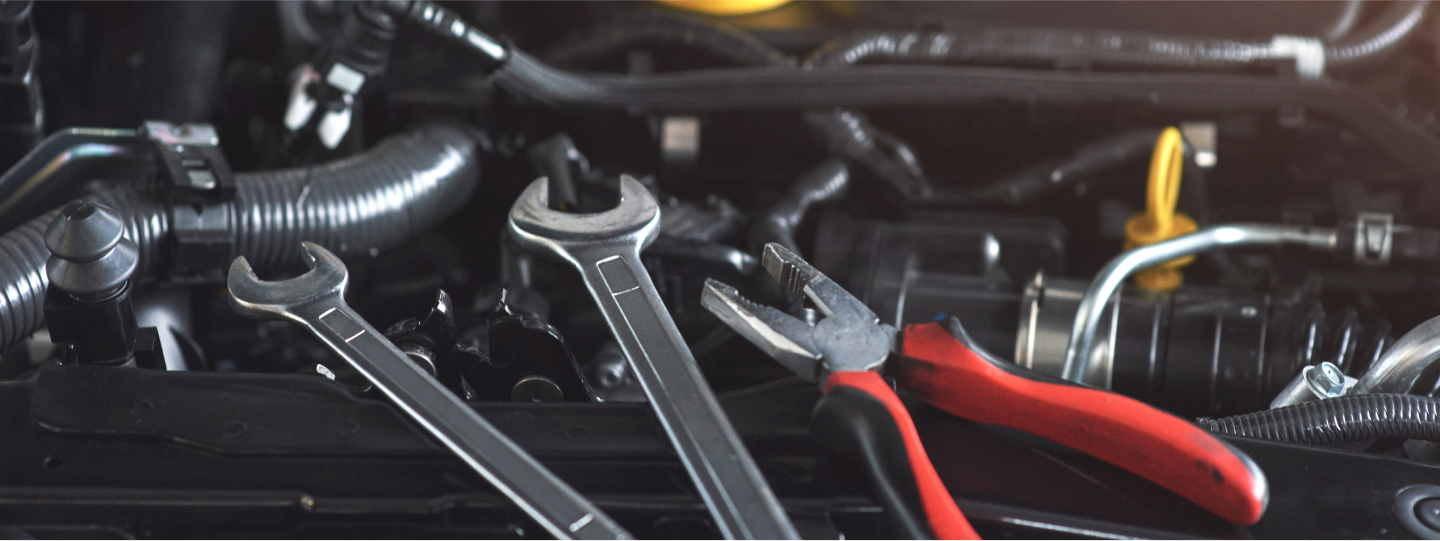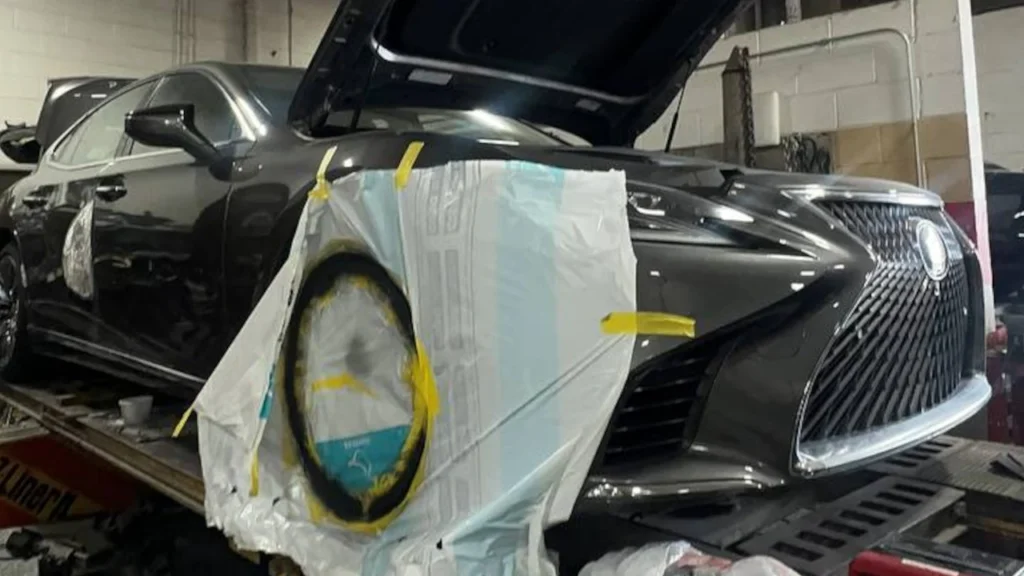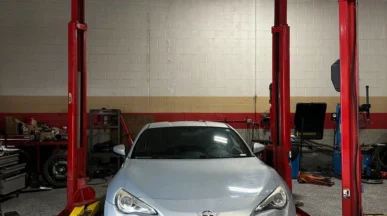How to improve car performance?
There are several ways to improve car performance, from simple maintenance tasks to upgrades and modifications. Here are some ways to improve car performance:
- Regular maintenance: One of the easiest ways to improve car performance is to keep up with regular maintenance, such as oil changes, air filter replacements, and tire rotations. According to Bridgestone Tires, “Regular car maintenance and tune-ups can help your vehicle run more efficiently and last longer.”
- Upgrade tires: Upgrading to performance tires can help improve handling, braking, and acceleration. According to Michelin Tires, “Performance tires are engineered to deliver better traction, handling, and steering response, so you can enjoy a safer and more exhilarating driving experience.”
- Upgrade brakes: Upgrading to high-performance brake pads and rotors can help improve braking performance, reducing stopping distance and improving safety. According to PowerStop Brakes, “High-performance brake pads and rotors are designed to deliver better stopping power and shorter stopping distances, so you can drive with confidence and control.”
- Upgrade suspension: Upgrading to high-performance suspension components, such as sway bars and shocks, can help improve handling and cornering ability. According to Eibach Springs, “Upgrading your suspension can help reduce body roll, improve cornering grip, and enhance overall handling performance.”
- Engine modifications: Upgrading engine components, such as air intake, exhaust system, and tuning, can help improve horsepower and torque, resulting in better acceleration and overall performance. According to K&N Filters, “Upgrading to a high-performance air intake can improve engine airflow and increase horsepower and torque, while upgrading the exhaust system can improve exhaust flow and enhance engine sound and performance.”
It is important to note that some modifications and upgrades may void your car’s warranty, and not all upgrades are legal in all states. It is always recommended to do thorough research and consult with a professional mechanic or tuner before making any modifications to your car.
There are several known ways to improve car performance, including regular maintenance, upgrading tires, brakes, suspension, and engine components. These upgrades can result in improved handling, acceleration, braking, and overall driving experience, but it is important to do your research and consult with a professional before making any modifications to your car.
Should I include tires in regular car maintenance?
it is highly recommended to include tire maintenance as part of your regular car maintenance routine. Tires are a critical component of your car’s overall performance, affecting everything from handling and braking to fuel efficiency and safety. Proper tire maintenance can help ensure that your tires last longer, perform better, and keep you safe on the road.
Here are some reasons why tire maintenance should be a part of your regular car maintenance routine:
- Safety: Tires are the only part of your car that come in direct contact with the road, so they play a crucial role in keeping you and your passengers safe. Worn or damaged tires can compromise your car’s ability to handle and stop, increasing the risk of accidents. Regular tire maintenance, such as checking tire pressure and tread depth, can help ensure that your tires are in good condition and able to perform as intended.
- Performance: Properly inflated and balanced tires can improve your car’s handling, acceleration, and fuel efficiency. Tires that are underinflated or worn can cause your car to handle poorly and reduce fuel efficiency, increasing the cost of ownership.
- Longevity: Regular tire maintenance can help extend the life of your tires, reducing the need for replacement and saving you money in the long run. Simple tasks like regular tire rotations and alignment checks can help ensure even tire wear, which can help extend the life of your tires.
Here are some specific tire maintenance tasks you should consider as part of your regular car maintenance routine:
- Check tire pressure: Your car’s tire pressure should be checked regularly, at least once a month, and before long trips. Proper tire pressure can help improve fuel efficiency and handling, as well as reduce the risk of tire damage and blowouts.
- Check tread depth: Your tire’s tread depth should be checked regularly to ensure that it meets legal requirements and is not worn down. Worn tires can compromise handling and braking performance, as well as increase the risk of hydroplaning on wet roads.
- Rotate tires: Regular tire rotations can help ensure even tire wear, which can help extend the life of your tires and improve handling and traction.
In summary, tire maintenance should be included in your regular car maintenance routine, as tires play a critical role in your car’s overall performance, safety, and longevity. Regular tire maintenance can help ensure proper tire pressure, tread depth, and wear, which can improve handling, acceleration, fuel efficiency, and safety, while reducing the need for expensive tire replacements.
Importance of Regular car maintenance
Regular car maintenance is essential for ensuring the longevity and performance of your vehicle. Neglecting regular maintenance can lead to a decline in performance, increased safety risks, and costly repairs. In this guide, we will discuss the benefits of regular car maintenance and how it can keep your vehicle running smoothly for years to come.
- Improved Performance: Regular maintenance can help improve your vehicle’s performance and enhance your driving experience. This includes services such as oil changes, tire rotations, and regular inspections, which help keep your car running smoothly and efficiently.
- Enhanced Safety: Regular maintenance is crucial for ensuring the safety of your vehicle. This includes services such as brakes checks and repairs, which can help prevent accidents caused by faulty brakes. Regular inspections can also identify potential safety hazards and allow for early repairs to be made, reducing the risk of accidents on the road.
- Extended Vehicle Life: Regular maintenance helps extend the lifespan of your vehicle. By taking care of your car and addressing any potential issues, you can prevent costly repairs and extend the life of your car. This can save you money in the long run, as you won’t have to replace your vehicle as often.
- Increased Resale Value: Regularly maintained vehicles are more valuable in the resale market. A car that has a complete maintenance history is more attractive to potential buyers, as it shows that the vehicle has been well-cared for. This can increase the resale value of your vehicle and help you get a better return on investment.
Regular car maintenance is an essential aspect of vehicle ownership. It can improve performance, enhance safety, extend the life of your vehicle, and increase its resale value. Make sure to follow the manufacturer’s recommended maintenance schedule and address any potential issues early to keep your car running smoothly for years to come.
What is car Longevity and how to improve it?
Car longevity refers to the length of time a car can remain operational and reliable, as well as the distance it can travel before requiring significant repairs or maintenance. Improving car longevity is important for reducing the cost of car ownership and avoiding the need for frequent repairs or replacements.
Here are some ways to improve car longevity:
- Regular maintenance: Regular maintenance is key to improving car longevity. This includes regular oil changes, filter replacements, and fluid checks, as well as scheduled maintenance tasks such as timing belt replacements and transmission fluid changes. According to Carfax, “Proper maintenance can add years of life to a vehicle.”
- Driving habits: Your driving habits can also impact car longevity. Driving gently and avoiding harsh accelerations and sudden stops can help reduce wear and tear on your car’s engine and transmission, extending their lifespan. According to Car and Driver, “Gentle driving can help improve the longevity of your vehicle.”
- Storage: How you store your car can also affect its longevity. If possible, keep your car in a garage or covered area to protect it from the elements, such as sun damage and rust. According to Carfax, “Storing a vehicle properly can help it last longer.”
- Upgrades and modifications: Upgrading your car with high-quality parts and making modifications can also help improve car longevity. For example, upgrading to synthetic oil can improve engine performance and reduce wear, while upgrading to high-quality brakes and tires can improve safety and reduce the risk of accidents. According to AutoZone, “Upgrading your vehicle with quality components can increase its lifespan.”
- Rust prevention: Rust can be a major problem for cars, especially in areas with high humidity or harsh winters. Regular cleaning and waxing can help prevent rust from forming, while rust-proofing treatments can protect vulnerable areas such as the undercarriage and wheel wells. According to Edmunds, “Rust prevention is key to improving car longevity.”
It is important to note that the specific steps you should take to improve car longevity can vary depending on the make and model of your car, as well as its age and condition. It is always recommended to consult with a professional mechanic or dealer for guidance on the best ways to improve the longevity of your car.
Improving car longevity is important for reducing the cost of car ownership and avoiding the need for frequent repairs or replacements. Regular maintenance, driving habits, storage, upgrades and modifications, and rust prevention can all help improve car longevity, but it is important to consult with a professional mechanic or dealer for guidance on the best approach for your specific car.



